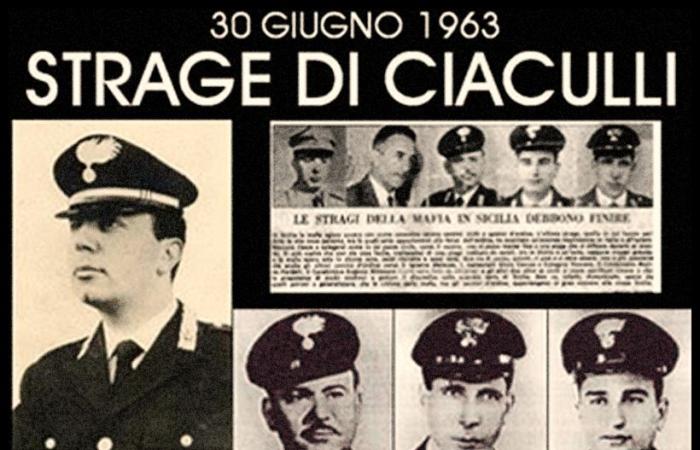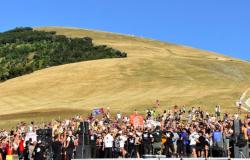Palermo, June 30, 1963, Ciaculli Massacre
Palermo, 30 June 1963, Ciaculli massacre, Today we commemorate one of the bloodiest events perpetrated by the mafia against representatives of the State: the Ciaculli massacre. On this occasion, the National Coordination of Teachers of the discipline of Human Rights, demonstrating its closeness to the police forces and the families of the victims, recalls through the intervention of the student, Vanessa Audia, of class III section C, Filolao scientific high school of Crotone , the dynamics of the time. “June 30, 1963 is a date remembered in the history of the fight against the mafia in Italy for the Ciaculli massacre, a tragic event that took the lives of seven men from the police force and the army. The massacre began with a report to the Palermo police about a suspicious car parked in the avenue of Villa Serena, an agricultural village of Ciaculli. The report immediately reached Lieutenant Mario Malausa, who understood the connection with Totò Greco’s home. He did not hesitate to send a patrol and the bomb squad to check the suspicious car. As soon as they began to inspect the car they found a gas cylinder inside, which they carefully managed to deactivate, unaware that it was only bait since a second explosive charge was hidden inside, connected with a tear-off mechanism to the door of the car. trunk, was activated as soon as Lieutenant Mario Malausa opened the trunk, killing all seven men present, leaving them no escape. Carabinieri lieutenant Mario Malausa, marshals Silvio Corrao and Calogero Vaccaro, officers Eugenio Altomare and Marino Fardelli, army marshal Pasquale Nuccio and soldier Giorgio Ciacci were victims of the ambush. The cunning demonstrated by the mafia makes us understand the importance of strengthening security measures and greater collaboration between the various law enforcement bodies. The Ciaculli massacre remains a painful event; but numerous initiatives were undertaken to combat organized crime and on 2 July 1963 forty suspicious people were arrested. The arrest of criminals certainly brings justice to the innocent victims, but it certainly does not bring them back to life. This is why it is important to remember the sacrifice of so many people who have fought for legality to try to improve interventions and investigations because sometimes it seems to always arrive late, always a moment later, making the intervention and effort of the police a failure.”
The reflections proposed by the young student are striking for their valid content: the appeal she addresses to all citizens and law enforcement officers for greater collaboration and solidarity between the honest parts of civil society is moving. Everyone’s cohesion and determination can truly change our daily reality for the better.
The National Coordination of Teachers of the discipline of Human Rights notes how the project “#ourstudentsnarratethemartyrsoflegality” is spreading among the young generations faces, stories and episodes that are truly extraordinary for their educational value.
Prof. Romano Pesavento
President CNDDU






